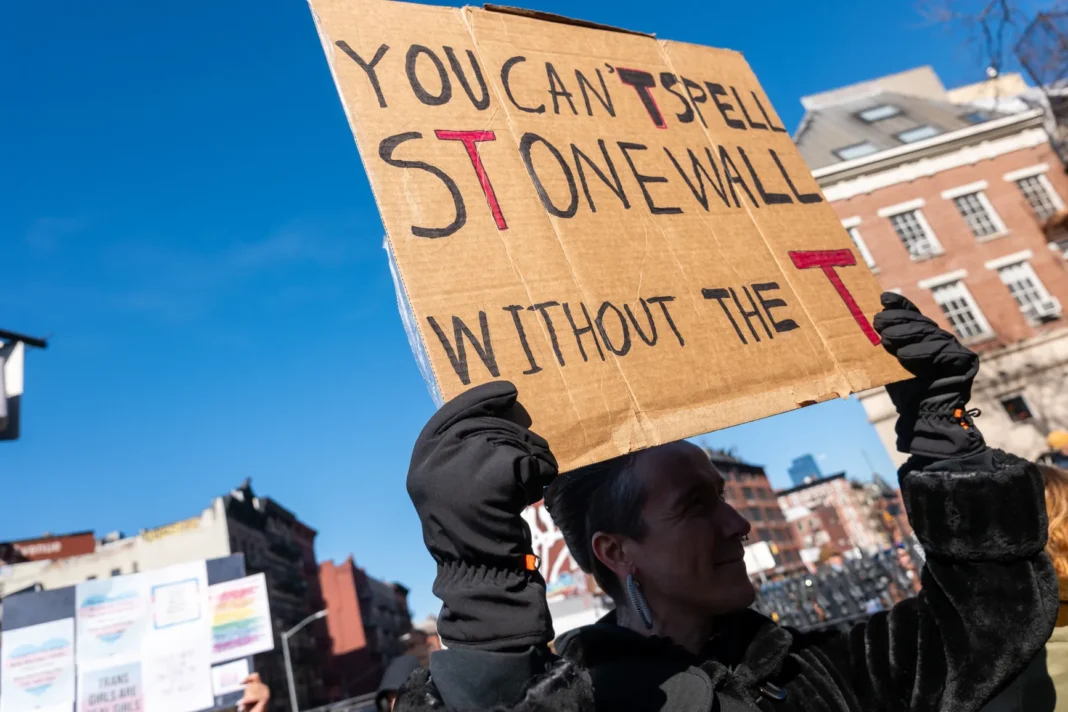The 1969 Stonewall Uprising was a pivotal moment in the fight for LGBTQ+ rights, with protests at the Manhattan gay bar led largely by trans and queer people of color.
Among them was Elizabeth, New Jersey, native Marsha P. Johnson.
Today, following the removal of references to transgender and queer people from the Stonewall National Monument website, Johnson’s family is fighting to preserve her legacy.
References to transgender and queer individuals were scrubbed from the Stonewall website and other federal sites late last week following multiple executive orders from the Trump Administration targeting the trans community. The Stonewall site now states: “The Stonewall Uprising on June 28, 1969, is a milestone in the quest for LGB civil rights and provided momentum for a movement.”
“This is not just an erasure of words — it is an erasure of history,” said James Carey, Johnson’s cousin and president of the Marsha P. Johnson Family Foundation, in a news release condemning the action alongside LGBTQ+ advocacy group Garden State Equality.
The move sparked protests from LGBTQ+ rights groups, with demonstrations taking place outside the Stonewall Inn.
“The Stonewall Uprising was led by trans and queer people of color, including my cousin, Marsha P. Johnson, alongside Sylvia Rivera and countless others whose courage sparked the modern LGBTQ+ rights movement,” Carey said. “Stripping trans and queer identities from the narrative of Stonewall is a deliberate and dangerous attempt to rewrite history.”
Aedy Miller, communications manager for Garden State Equality, called the decision disgraceful.
“Shamelessly attempting to remove transgender and queer people from the historical narrative does not change the fact that they were there,” they said. “It does not change the fact that transgender and queer people were often the leaders of the fight. And it does not change the fact that the rights and protections we enjoy today are the direct result of decades of activism by transgender and queer people—both those whose names we know, like New Jersey’s own Marsha P. Johnson, and countless others whose names we may never know but whose legacy we honor nonetheless.”
Johnson’s body was found floating in the Hudson River in 1992 amid a rise in anti-LGBTQ+ violence. Originally ruled a suicide and later classified as undetermined, the New York City Police Department reopened the case in 2012.
Carey emphasizes that Johnson fought for a world where no one should have to live in fear because of their identity.
The Marsha P. Johnson Family Foundation and Garden State Equality are calling on the National Park Service and the Trump Administration to restore “accurate, inclusive language” to the Stonewall website.
“Our history will not be erased. Our community will not be silenced. And our fight, in honor of Marsha P. Johnson and so many others who came before, continues,” Carey said.
Ilana Keller is an award-winning journalist and lifelong New Jersey resident who loves Broadway and really bad puns. Reach out on Twitter @ilanakeller or email [email protected].


